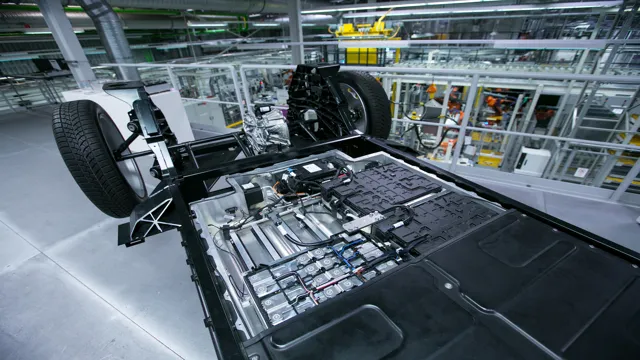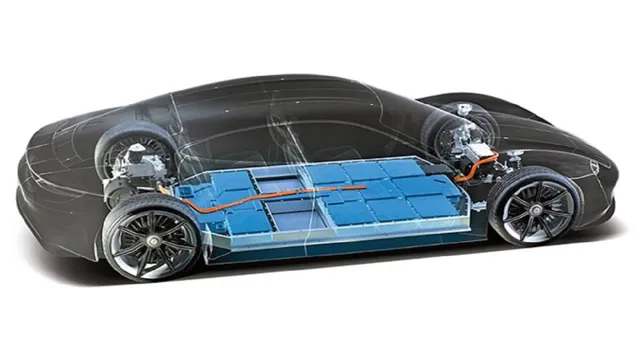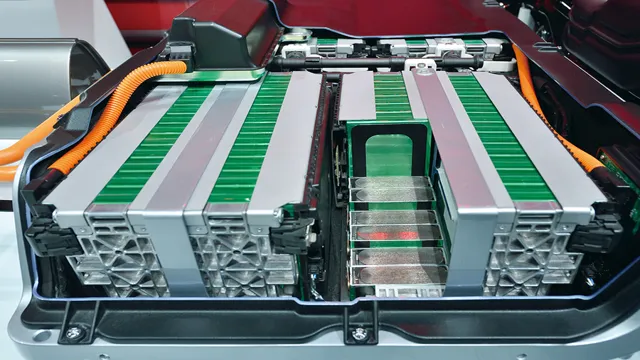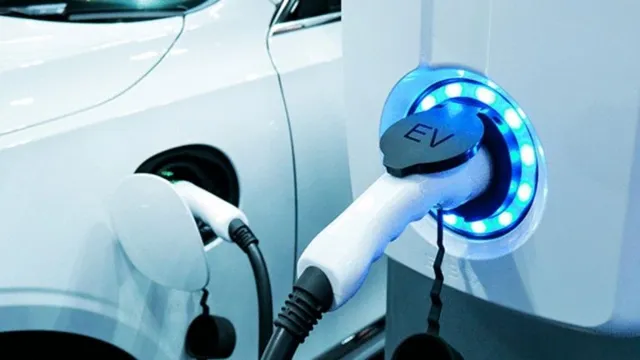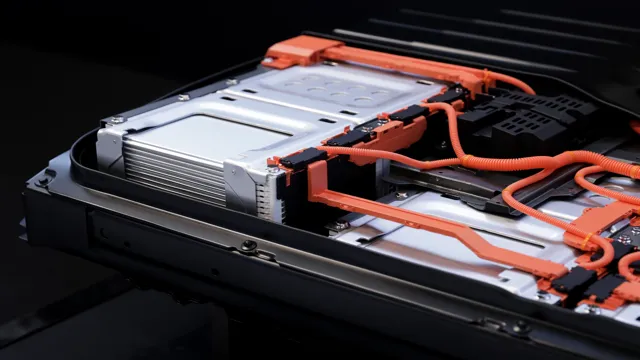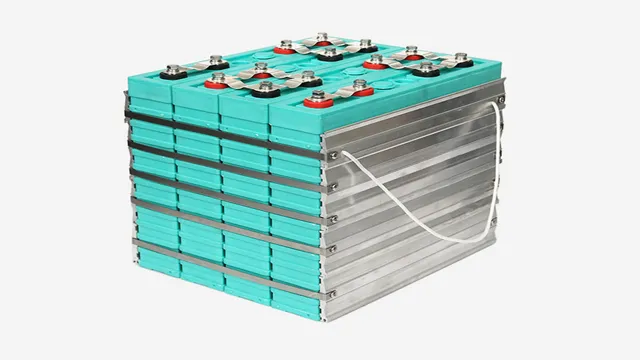Reviving the Dead: Your Ultimate Guide to Resurrecting Electric Car Batteries
Electric cars have revolutionized the automotive industry, with their eco-friendly and sustainable features. However, like any other man-made machine, electric car batteries have their fair share of issues, with one of the most common being dead batteries. So what causes these batteries to fail, and what solutions and future innovations are available to tackle this problem? One of the main causes of dead electric car batteries is overuse and overcharging.
If you constantly charge your electric car battery to its maximum capacity, it can overexert the battery and cause irreversible damage. Another cause could be extreme weather conditions, such as extremely high or low temperatures, which can also affect the battery life. Thankfully, solutions for dead electric car batteries exist, including battery replacement and recycling.
Furthermore, there are several innovations in the works that could revolutionize the electric car battery industry. For instance, researchers are working on developing batteries with a longer lifespan, faster charging times, and higher energy densities. These innovations could lead to electric cars with batteries that can drive longer distances and last even longer.
In conclusion, while dead electric car batteries are a common issue among electric car owners, several solutions and innovations are available to combat the problem. With continued research and development, the future of electric car batteries looks bright, and we can expect even better longevity and reliability in the years to come.
Causes of Electric Car Batteries Failure
Dead electric car batteries are a common issue faced by electric vehicle owners. While the precise cause of battery failure can vary, several factors contribute to the problem. One of the most significant causes of dead batteries is misuse or mishandling.
Overcharging or undercharging the battery can lead to premature failure. Similarly, exposing the battery to high temperatures can cause damage to the cells, resulting in a shorter lifespan. Additionally, battery degradation over time is a natural occurrence that occurs in all batteries, including electric car batteries.
As the battery ages, its capacity diminishes, and it loses its ability to hold a charge for extended periods. To mitigate this, regular maintenance checks and battery replacements can ensure the battery’s longevity and prevent unexpected battery failures. Overall, understanding the causes of dead electric car batteries can aid electric vehicle owners in maintaining their batteries’ optimal performance and avoiding costly repairs.
Manufacturing Defects
Electric car batteries have revolutionized the automotive industry with their clean and efficient energy storage capabilities. However, like any other technology, they are not perfect. One of the most significant causes of electric car battery failure is manufacturing defects.
When batteries are produced, they go through rigorous testing to ensure they work correctly. However, sometimes, small defects can occur during production, and these can lead to significant battery failures over time. This can include defects in the cathode or anode materials, creating internal shorts or developing dendrites that cause the battery to fail.
It’s crucial for manufacturers to take the necessary steps to minimize the risk of defects during battery production, such as improving production processes and quality control measures. By doing so, they can help ensure that electric car batteries are both reliable and safe.
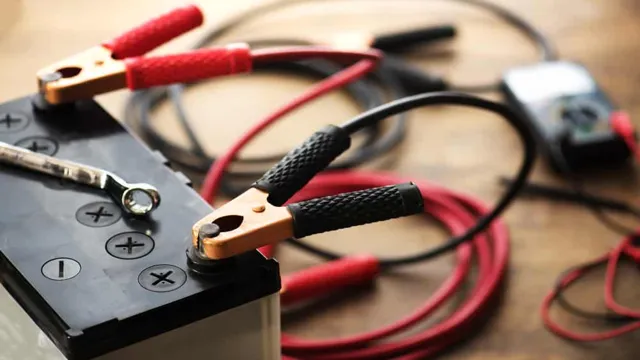
Overusage & Environmental Factors
Electric car batteries are undoubtedly one of the most important parts of an electric vehicle and are essential for the vehicle’s performance. However, electric car batteries can fail due to various reasons, such as overusage, environmental factors, and manufacturing defects. Overusage is one of the primary culprits of battery failure.
While electric cars are known for their efficiency, drivers who frequently take long trips or fail to charge their batteries regularly may damage their batteries. Environmental factors, such as high temperatures, can also contribute to battery failure. Hot temperatures can cause chemical reactions inside the battery, ultimately damaging its components.
Additionally, overcharging the battery can cause a buildup of heat and damage the battery’s cells, leading to its failure. Manufacturers are working to develop more durable and long-lasting car batteries, but it is important for electric car owners to take care of their batteries and avoid overusage and environmental damage to extend their battery life.
Age & Wear and Tear
Electric car batteries may fail for a variety of reasons, but perhaps the most common culprits are age and wear and tear. As with any type of battery, a lithium-ion battery’s ability to hold a charge decreases over time and with repeated use. This means that as an electric car’s battery ages, it may become less efficient and run down more quickly than when it was brand new.
Wear and tear on a battery can also occur from frequent use, extreme temperatures, and high voltage charging. Over time, this wear and tear can result in a reduced battery capacity, which can impact the car’s overall range. While electric car batteries are built to withstand a certain amount of wear and tear, it is important to properly maintain the battery and follow recommended charging and storage guidelines to ensure its longevity.
Regular maintenance, such as avoiding exposing the battery to extreme temperatures and charging before it reaches a critically low level, can help prolong the life of the battery and prevent unexpected failures.
Solutions to Deal with Dead Electric Car Batteries
Dead electric car batteries can be a hassle, but there are several solutions to deal with them. One option is to recycle the battery. Electric car batteries contain valuable materials such as lithium, cobalt, and nickel, which can be extracted and reused in new batteries or other products.
Another solution is to repurpose the battery for stationary energy storage. A dead car battery can still hold a significant amount of energy, and it can be used to power homes or businesses. Lastly, some automakers offer battery replacement programs, where the dead battery is swapped out for a new one.
This option can be expensive, but it ensures that the vehicle is running efficiently and with a fully functioning battery. It’s important to properly dispose of dead electric car batteries, as they can be harmful to the environment and human health. By utilizing these solutions, we can reduce waste and extend the life of electric vehicle batteries.
Recycling, Refurbishing & Reusing
With the popularity of electric cars increasing day by day, the issue of dead electric car batteries has also risen. However, the good news is that several solutions exist to deal with these dead batteries. The first solution is recycling.
Recycling is the process of breaking down and recovering materials from the battery. It involves refining the metals and components in the battery and reusing them in the industrial processes. The second solution is refurbishing.
This means restoring the dead battery to its original state by replacing the faulty components. The third solution is reusing. This involves repurposing the dead battery by giving it a new life in a new application, like energy storage for solar panels, boats, and even homes.
By adopting these solutions, we can significantly reduce the negative impact of dead electric car batteries on the environment and create a sustainable future.
Battery Swapping & Charging Stations
When talking about electric cars, one of the biggest concerns is what to do with dead batteries. Luckily, there are solutions available that can help in the case of a drained battery. One such solution is battery swapping.
Battery swapping stations act like filling stations where electric car owners can bring in their depleted battery and get a fully charged one in return. This process is quick and efficient, taking around ten minutes to complete. Additionally, there are charging stations located throughout cities where drivers can hook up and charge their cars while they run errands.
With the advancements in renewable energy, these stations can use solar panels to power the charging, making it even more eco-friendly. These solutions help to alleviate fears about the lack of charging infrastructure and provide drivers with a sense of security when it comes to their electric cars.
Maintenance & Predictive Analytics Tools
Electric car batteries can be expensive to repair or replace when they die, but there are solutions available to deal with this issue. One such solution is the use of maintenance and predictive analytics tools. These tools can monitor the performance of the battery and predict when it may fail, allowing for preventative maintenance to be performed before a complete failure occurs.
This approach can save electric car owners from expensive repair bills and keep their vehicles running smoothly. Additionally, some companies are developing innovative ways to reuse dead electric car batteries, such as repurposing them for energy storage for homes or businesses. This not only reduces waste but also provides a new source of sustainable energy.
By using these solutions, we can extend the life of electric car batteries and reduce the environmental impact of producing new ones.
Innovations in Electric Car Batteries Technology
Dead electric car batteries may be a thing of the past with the innovations being made in electric car battery technology. One major development is the ability to recycle and repurpose old batteries. Instead of disposing of them, the materials can be extracted and used in new batteries or in other products.
Additionally, new battery chemistries are being developed that are more efficient, longer lasting, and capable of more rapid charging. This can greatly extend the life of electric car batteries and reduce the need for replacements. With these advancements, electric car owners can feel more confident about the longevity and sustainability of their vehicles.
Solid-State Batteries
Solid-state batteries are a new and exciting innovation in electric car battery technology. Unlike traditional lithium-ion batteries, solid-state batteries use solid electrodes and an electrolyte instead of a liquid one. This creates a safer, more efficient, and longer-lasting battery that can withstand higher temperatures and has a higher energy density.
This means that electric vehicles can travel further on a single charge and can potentially be charged much more quickly. In addition, solid-state batteries are more environmentally friendly, as they contain fewer toxic materials than traditional batteries. As electric cars become more popular, the development of solid-state batteries is a promising step towards a more sustainable future.
Self-Healing Batteries
Electric car batteries face a challenge; over time, they lose their ability to hold a charge and eventually die out. However, in recent developments, self-healing batteries are being created to address this issue. These batteries utilize special sensors that detect any flaws or cracks in the battery, and then initiate a process of self-healing.
This process involves filling in the cracks with a conductive material, thus restoring the battery’s ability to hold a charge. Innovation in electric car battery technology is important because it impacts the overall performance and functionality of the vehicle. Self-healing batteries have the potential to increase the lifespan of electric car batteries significantly, potentially reducing costs and the need for constant battery replacements.
Who knows, self-healing batteries just might pave the way for the future of electric cars?
Conclusion – The Future of Electric Car Batteries
In the world of electric cars, the phrase ‘dead battery’ takes on a whole new meaning. It’s not just a minor inconvenience – it’s a major setback. But, let’s not jump to conclusions and assume that the end has come for electric cars.
After all, just like any other technology, there are bound to be hiccups along the way. With advancements in battery technology and increased efforts towards sustainability, the future looks bright for electric cars. So, don’t let those dead electric car batteries dampen your spirits.
Instead, let’s charge forward towards a greener future!”
FAQs
What causes electric car batteries to die?
Several factors can lead to the death of electric car batteries, including overcharging, extreme temperatures, and regular wear and tear.
Can dead electric car batteries be revived?
In some cases, dead electric car batteries can be revived through a process called reconditioning. However, this is not always successful and depends on several factors, including the age and condition of the battery.
How long do electric car batteries typically last?
The lifespan of electric car batteries can vary depending on several factors, including the specific make and model of the car and how well the battery is maintained. Generally, electric car batteries can last anywhere from 5 to 15 years.
What should I do with dead electric car batteries?
It is important to properly dispose of dead electric car batteries to prevent environmental harm. Many auto shops or recycling centers accept dead batteries and will properly dispose of them or recycle the components.

